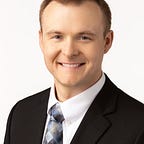Eradicating Poverty through “Privatized Banking”
3rd-world communities saving together, lending together, & investing in each other.
Problem
Small-and-Medium Enterprises are critical for national economic progress (including the U.S.), but in countries with lower per capita incomes, these businesses are noticeably missing. For entrepreneurs ready to scale, larger loans and additional training empower them to create jobs and minister to their communities.
Solution
A very impactful international ministry named Hope International is sharing the hope of Christ by providing biblically based training, savings services, and loans that restore dignity and break the cycle of poverty. They are investing in the dreams of families in the world’s underserved communities as they proclaim and live the Gospel.
The purpose of this article is not to promote any person or organization but only to share ideas and concepts to promote the flourishing of ALL people.
They serve millions of people all over the world in very difficult places through TWO MAIN APPROACHES:
Savings Groups: Typically formed through church’s, savings group members save money together and often make small loans from their savings pool.
Savings group members lend to one another and are entirely self-managed, self-governed, and self-sufficient. Funds from donors help equip local
churches to own the ministry.
After three years, savings group members graduate, and local churches are commissioned to fully own the ministry. Most of the time, graduates continue meeting and serving each other spiritually and materially.
Micro-Finance Institutions: MFI’s are banks that equip entrepreneurs with financial tools to invest in businesses and better provide for their families.
In this particular ministry, entrepreneurs who have borrowed, have repaid 97.8% of loans disbursed in the last five years. As men and women repay their loans with interest, MFIs recycle those repayments to invest in the dreams of even more families.
“If we gave handouts rather than a hand up, we would have to raise THREE TIMES the amount of donations.”
Operational income, through loan repayments, and donated funds are used to help launch new MFIs in underserved areas.
Lend to My People
Hope International is living the principles that God teaches to the Israelites when they arrived at Mt. Sinai, and after God had just given them the 10 Commandments:
“If you lend money to one of my people among you who is needy, do not treat it like a business deal; charge no interest. If you take your neighbor’s cloak as a pledge, return it by sunset, because that cloak is the only covering your neighbor has. What else can they sleep in? When they cry out to me, I will hear, for I am compassionate. — Exodus 22:25–27
There were two types of lending that God instructed His people to engage in; lending to aid in the needs of others without charging interest, and lending to invest in business deals with reasonable interest.
God has made it abundantly clear in His word that our lending/investing should lift other’s up, empowering them to grow, not hindering their progress.
Jesus specifically taught as the main point to His parable of the shrewd manager:
I tell you, use worldly wealth to gain friends for yourselves, so that when it is gone, you will be welcomed into eternal dwellings. — Luke 16:9
The ultimate goal is to make friends for eternity.
Multiplied Impact
In 2007, Jeanne took out a $50 loan to grow her small business. Today, she and her husband, Marcel, run 10 businesses and employ 41 people. They provide a stable home for their 10 children, and they lead a church of 70 members. Marcel and Jeanne also pay health insurance for 200 members of their African community .
Jeanne says, “It is such a joy to be able to provide for my family and even have enough to share with our extended family and community.”
How many friends has Jeanne and Marcel made through there biblical stewardship?
The profit in their current life is paying large dividends into their eternal life.
Conclusion
Community based banking is a major key to community flourishing. Individuals and communities must own and control the banking function to invest in themselves and others.
I used to be somewhat discouraged when I discovered this principle in God’s Word, but could not find any examples of the community transformation that God’s Word seems to promise. When I discovered ministries like this one, who are actively teaching and implementing God’s way in impoverished communities, I was reinvigorated with excitement. God’s ways are universal in instruction and application.
If we want more control and flourishing in our American communities, we must also learn to control our own “banking” system. There are many ways to do this, but in the United States, the absolute best and most efficient way, is by taping into an existing, very old system that is already doing it. It gives us an ownership role in the system to access the cash holdings to utilize however we see fit.
“Economic problems are best solved by people freely contracting with one another and with government limited to the function of enforcing those contracts. The absolute best way to do so is through the magnificent idea of dividend-paying whole life insurance. It has more in common with banking than it does with life insurance. A better name would have been a ‘banking system with a death benefit thrown in for good measure.’ It has been around for over 200 years and stood the test of time. It is not compulsory. It is not a government sponsored idea. It preceded the income tax idea by a long time. It is Private Property! Also, the only people who participate in this idea are people who truly care about other people. What a great group of people to be engaged in business with.” — Excerpts from ‘Becoming Your Own Banker’ by R. Nelson Nash
